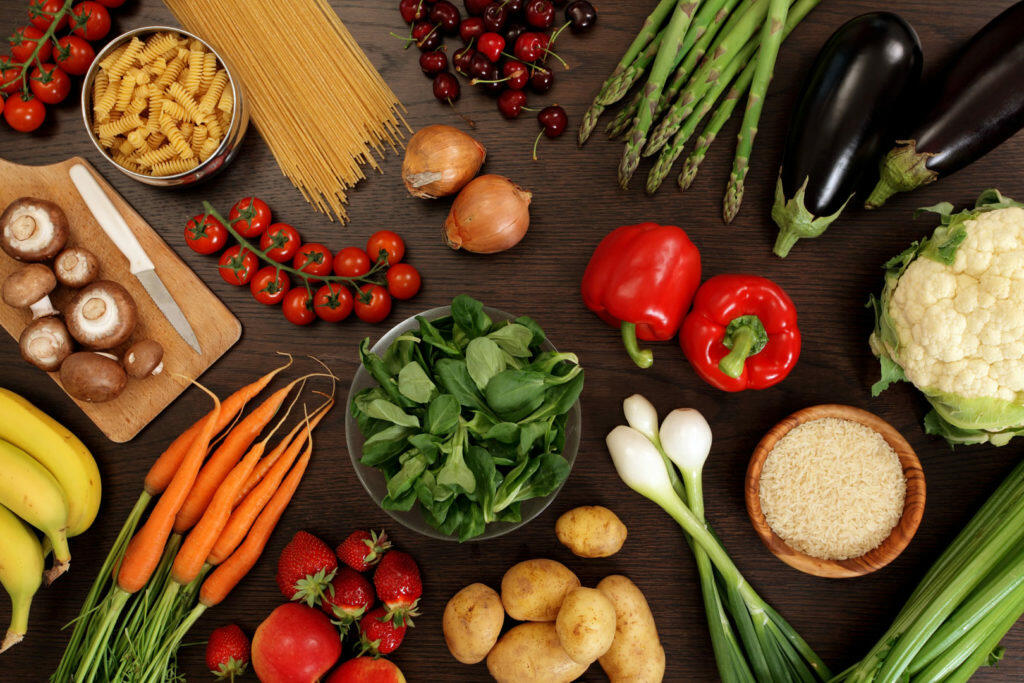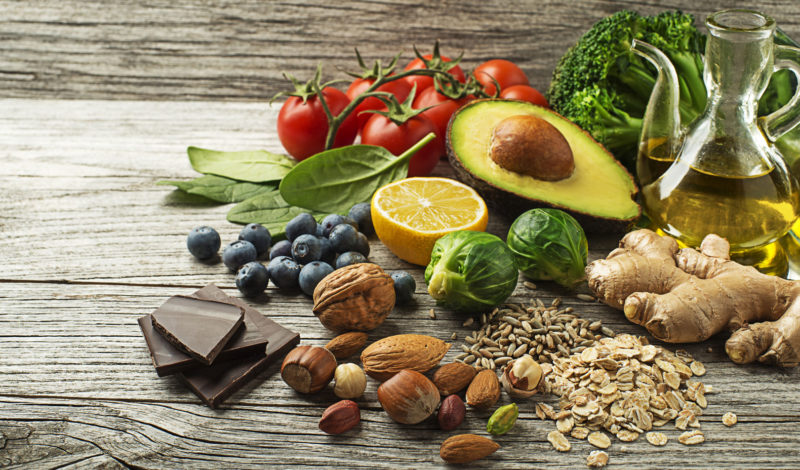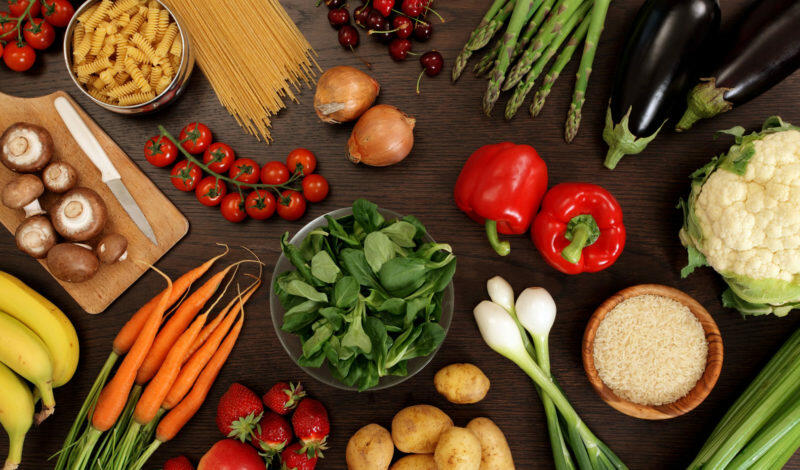More and more Germans are opting for a meat-free diet or are consciously reducing their meat consumption. According to ProVeg [...]

Nutrient deficiency
With a healthy and varied diet vegetarians usually have no nutrient deficiencies to fear.
Vegetarians should pay attention to nutrients
Whether out of love for animals, environmental awareness or for health reasons – more and more people are going vegetarian or severely restricting their meat consumption. The latter are also referred to as flexitarians. Most vegetarians are ovo-lacto-vegetarians. This means that they deliberately avoid meat and fish, but eat eggs and dairy products. The German Nutrition Society (DGE) considers this diet to be safe and even recommends it. However, it assumes that vegetarians consume sufficient quantities of the nutrients that the body needs every day. With a healthy and varied diet that includes plenty of fruits, vegetables, legumes, nuts, cereals, dairy products, and eggs, vegetarians generally do not have to worry about nutrient deficiencies.
Healthy vegetarian: nutrients you need every day

In addition to so-called macro-nutrients such as fats, carbohydrates and proteins, which we usually consume in sufficient quantities, both mixed foodists and vegetarians need micro-nutrients such as minerals and vitamins. Of course, meat and fish also contain valuable nutrients. They score particularly well in terms of protein content. Nevertheless, vegetarian foods contain enough nutrients to replace meat without any problems. Vegans have a more difficult time, since they do not eat any animal products at all. Those who switch to a purely plant-based diet should compile their menu very carefully and prevent deficiencies with the help of special dietary supplements.
The following table tells you which nutrients are particularly important for you as an ovo-lacto-vegetarian and how you can cover your requirements in sufficient quantities with a vegetarian diet.
| Important nutrients | Recommended daily dose | Alternative vegetarian food |
|---|---|---|
| Protein | 50 to 60 g | Milk and dairy products as well as nuts, legumes and cereals (soy, peanut, lentil), eggs |
| Iron | 10 to 15 mg | Legumes, whole-grain products (especially wheat bran), pumpkin seeds, nuts; best in combination with foods containing vitamin C |
| calzium | 1.000 to 1.200 mg | Milchprodukte, Tofu, Grünkohl, Brokkoli, Fenchel, kalziumreiches Mineralwasser |
| Jod | 150 to 200 µg | Dairy products, tofu, kale, broccoli, fennel, calcium-rich mineral water. |
| Zinc | 7 to 10 mg | Whole grains (e.g. oatmeal), cheese (especially Edam), legumes (especially lentils, peas), nuts, seeds (especially pumpkin seeds, sesame seeds) |
| Omega-3 fatty acids | 300 mg | Linseed oil, rapeseed oil, hemp oil, walnut oil, soybean oil |
| Vitamin B12 | 3 µg | Eggs, dairy products (especially Camembert), fortified foods (margarine, soy products), food supplements |
Reasons for nutrient deficiency
A deficiency is when your body is not sufficiently supplied with nutrients and thus body functions and metabolic processes are restricted. Whether meat-rich or vegetarian – nutrients are found primarily in fresh, unprocessed foods. Fast food, convenience foods and highly processed and heated foods, on the other hand, contain hardly any valuable vitamins and nutrients. It is therefore advisable to eat mainly home-cooked and freshly prepared food. A change in nutrient requirements, for example due to physical stress caused by sport, psychological problems and excessive consumption of stimulants such as alcohol, cigarettes and sugar, can increase the risk of a nutrient deficiency.
Intestinal diseases can also cause a nutrient deficit. Chronic gastrointestinal diseases such as Crohn’s disease or ulcerative colitis hinder nutrient absorption in the intestine. This is mainly because the disease disturbs the balance of the intestinal flora. However, sufferers may also generally have intestinal flora that is less rich in beneficial bacteria. If you know how your intestinal flora is doing, you can prevent some intestinal complaints and diseases. INTEST.pro from BIOMES offers you a comfortable possibility. Based on the analysis results, you can have an individual nutrition plan created and receive concrete recommendations for action. This way you can quickly find out which foods are particularly good for you and your intestines.
Possible complaints of vegetarians with nutrient deficiency
Whether you are a meat eater or a vegetarian – a lack of nutrients in your body will sooner or later result in deficiency symptoms. The symptoms can be very different and depend on which nutrient your body is lacking. An iron deficiency, for example, can be indicated by headaches, concentration problems, brittle nails, cracked corners of the mouth or hair loss. If you are often tired, in a bad mood, lack appetite and have a cold, this may indicate a vitamin B12 deficiency. If you feel that you are not getting enough nutrients despite eating a healthy, balanced diet as a vegetarian, you should consult your family doctor. A blood test will tell vegetarians what nutrients they are lacking. Some need more than others – for example, women who are pregnant or breastfeeding. It is recommended that vegetarians take special care in preparing their diet and consult their doctor. Only the doctor can identify possible deficiencies in good time and recommend suitable dietary supplements and vitamin preparations.



